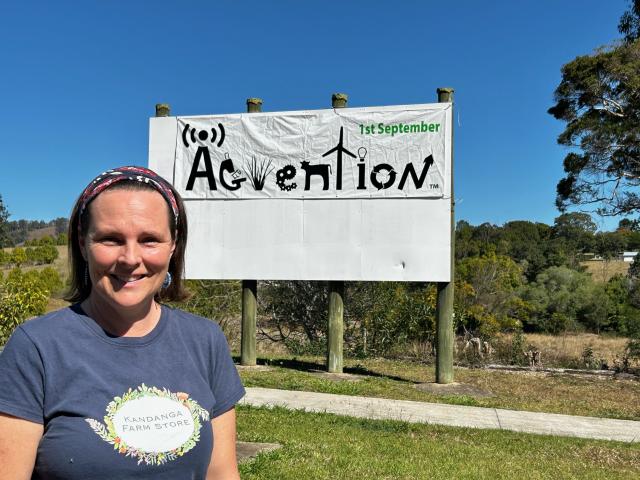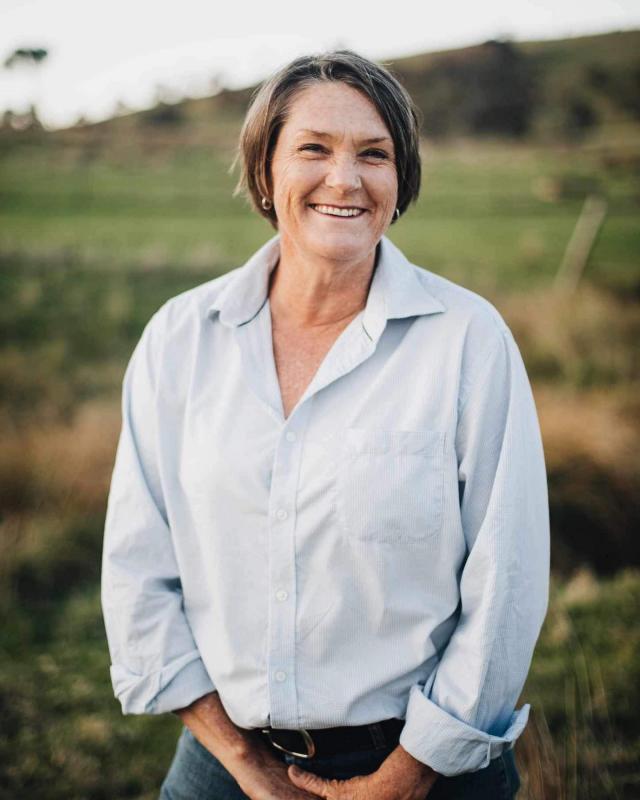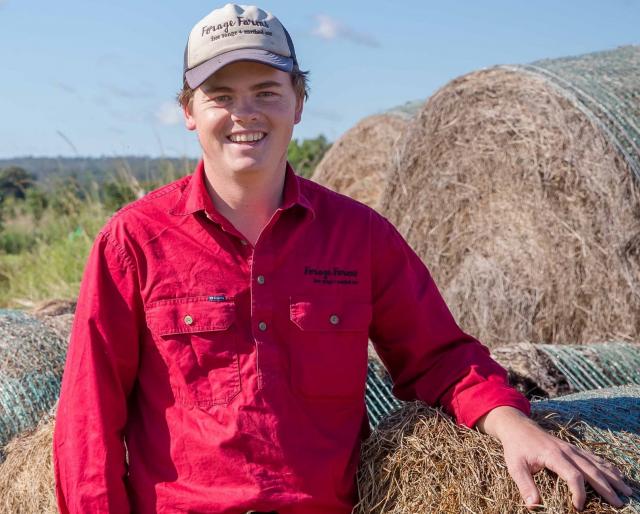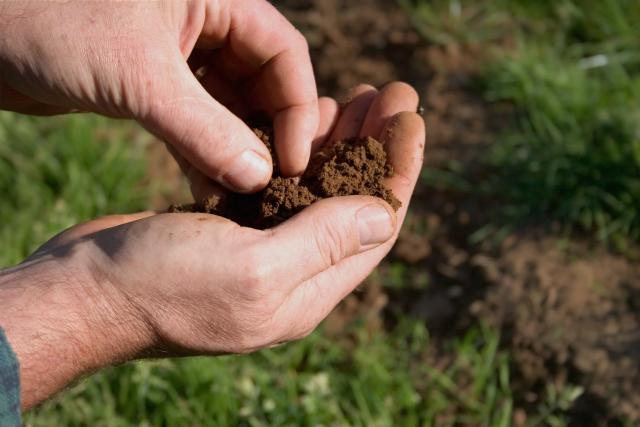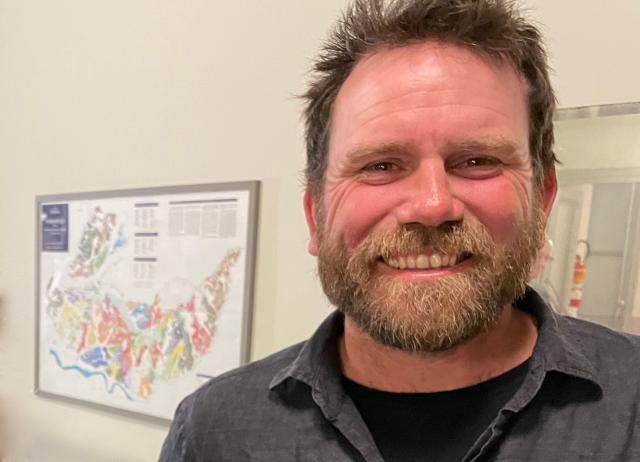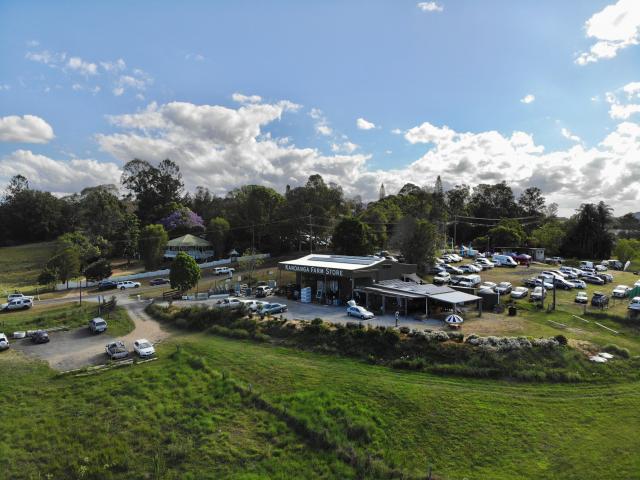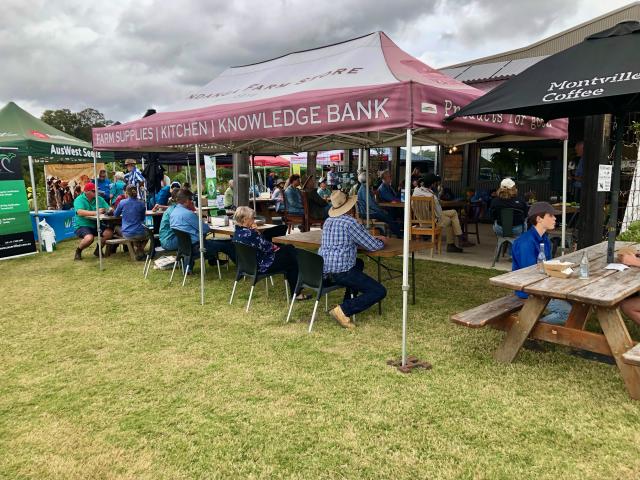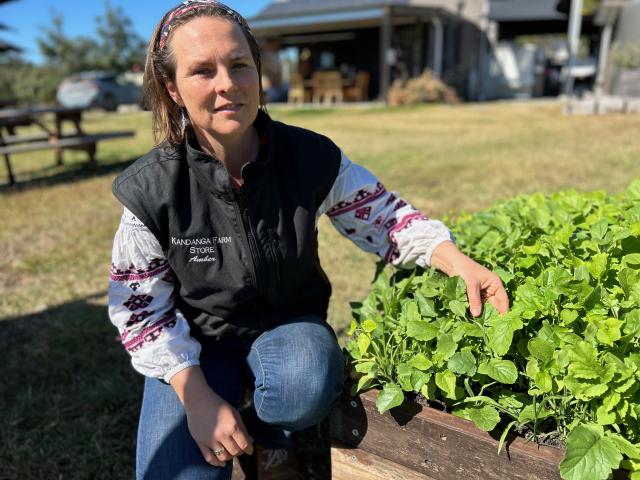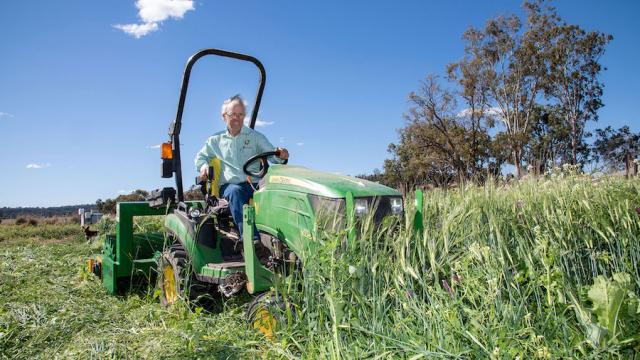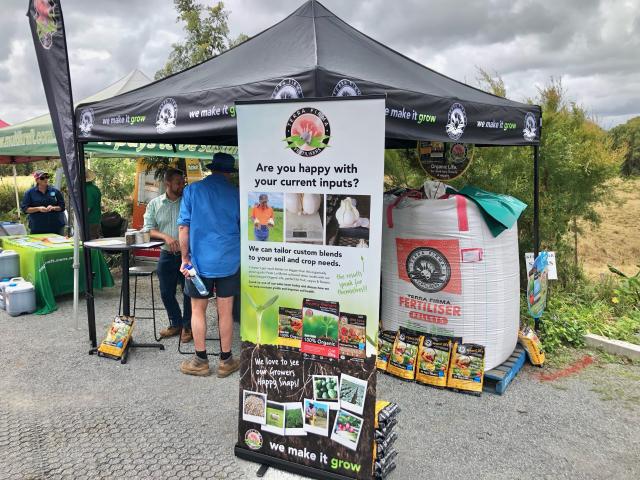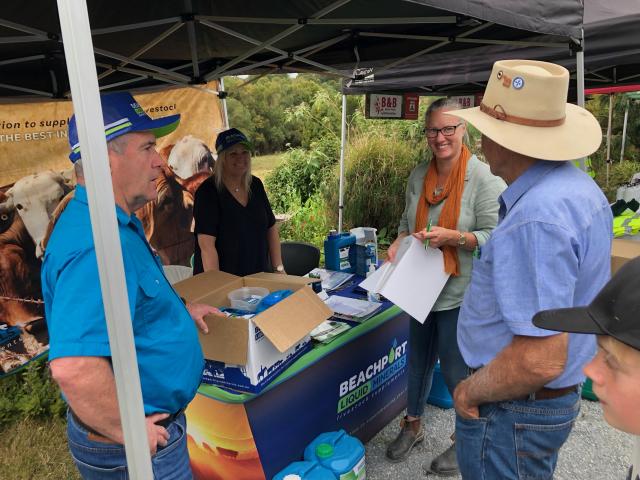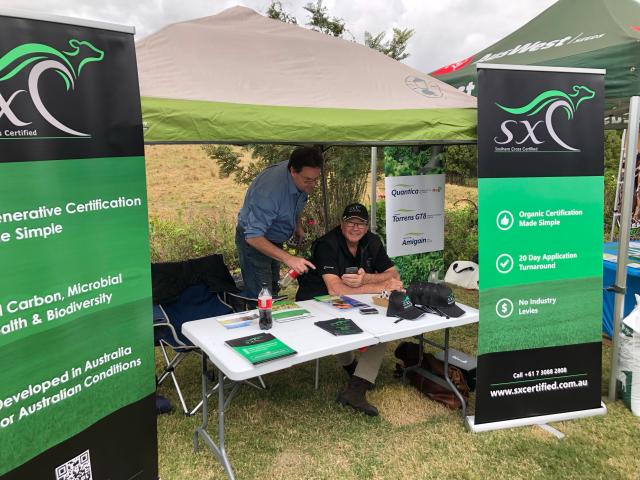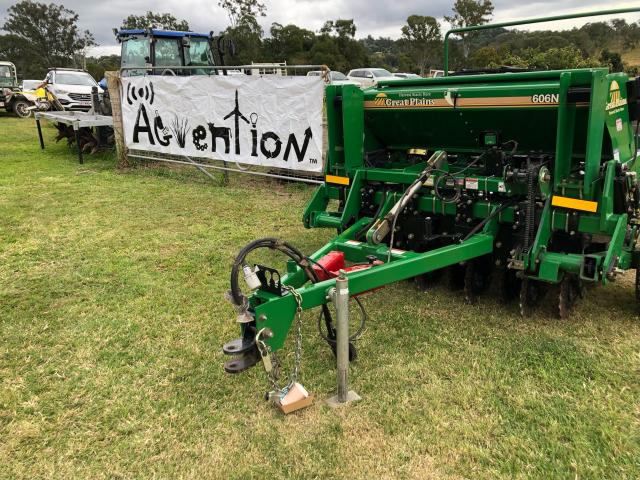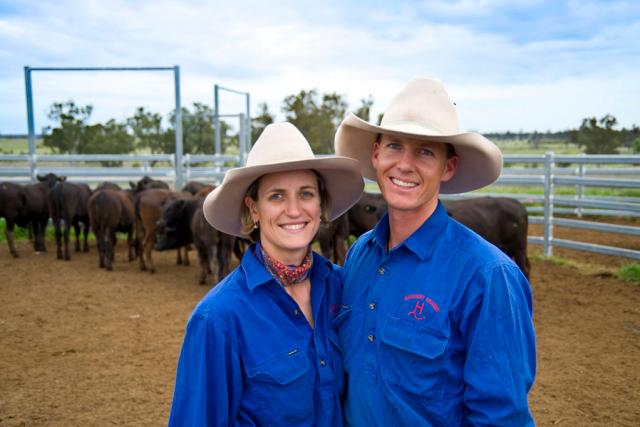If you care enough about the food you eat or the way you produce it, then Agvention 2023 is for you.
Agvention will be held at Kandanga on Friday 1 September with its theme of Innovation, Invention and Ideas.
It will be a field day like no other, with a host of guest speakers and farm input suppliers showcasing regenerative agriculture innovations and technology at Kandanga Farm Store.
This year Agvention will see 32 exhibitors and nine speakers focus on aspects of improving food production generally not touched on at such forums.
Kandanga Farm Store’s Amber Scott said numbers through the gates on the day could be upwards of 300.
Topics covered will include ways of breaking the breeding cycle of buffalo flies that create such an issue with cattle.
Speakers will also discuss the role of dung beetles in regenerative farming, ways of measuring soil carbon, and a range of seeds to be used for cover crops.
Agvention was started pre-Covid in 2019 and revived in 2022.
“This is specific,” Amber said, “… not a free-for-all of all farming techniques.
“We are dealing directly with those on a regenerative journey with suppliers, guest speakers and producers.
“The feedback from last year’s event was very satisfying. People loved the speakers and we have put a lot of effort into this year’s line-up.
“We are the only ones that we are aware of to offer such an experience – workshops, discussion, new products.
“The range of speakers this year are on the (regenerative) journey, talking about their experiences.
“Until now it has been hard to get in touchwith people who are on a similar journey.
“Agvention is designed to bring people and ideas together.”
Guest speakers this year include integrative behavioural nutritionist Victoria Kane; third-generation regenerative farmer Hamish Andrews; Gympie and District Landcare’s biological services manager Yvonne Hennell; Darling Downs regenerative farmer David Lange; Randal Breen of Echo Valley Farm, who operates a stacked, multi-species, holistic operation at Goomburra;
Among the exhibitors will be industry recovery and resilience officer Virginia Kelleher; Northern Territory cattle station owners and tank manufacturers Adrian and Emma Brown; Beachport Liquid Minerals with a display about livestock nutrition.
Topics and exhibits will range from biosecurity and animal health without chemicals, to cover crops, biological pest management, machinery for regenerative farming (regen) to microbes and setting up a farm.
“Regen is a complete mind-shift to a better, more holistic approach to farming,” Amber said.
“There is no silver bullet … Agvention is more than products, it may be the first step in an education process.”
“It’s a remarkably small industry and we would like Agvention to grow every year,” Amber said, “… so we do need to have products worth coming to see, not those that you could see anywhere else.
“The feedback from last year’s event was people loved the speakers and we have put a lot of effort into that side of things this year.
“Food is a big part of it. Normally at a field day the food is an afterthought but here it is a very important part of everything we do … locally sourced and organic.
“Montville coffee are coming … they have been amazing supporters.”
Although definitions vary, five core principles of regenerative agriculture are internationally recognised:
– Don’t disturb the soil.
– Keep the soil surface covered.
– Keep living roots in the soil always.
– Grow a diverse range of plants.
– Incorporate grazing animals into the system.
The aim of regenerative agriculture is to achieve increasing farm outputs from decreasing inputs.
Outputs are measured in their whole, not just quantity of yield.
Considerations such as nutrient density, ecological impact and soil health improvement all need to be accounted for.
Largely, this is achieved by mimicking nature, Amber said. That is re-engaging natural cycles rather than artificial ones and understanding we are part of nature and not above it.
INNOVATION
At this year’s event will be Plasson, who are suppliers of irrigation fittings and quite innovative.
They have developed a trap to reduce the numbers of cane toad tadpoles – which has implications for buffalo flies.
This is important, Amber said, as cane toads attack and eat dung beetles.
In turn, the dung beetles are important for so many reasons.
“They take the dung underground where the buffalo flies cannot lay their eggs, and this breaks the breeding cycle.
“Otherwise you have an explosion of buffalo flies and this is a major problem for livestock … the costs to the livestock industry is millions each year.
“The flies bite the cattle and cause lesions that are extremely detrimental to their well-being.
“When you are organic you are talking about doing things on a lot of different fronts.
Gympie & District Landcare’s biological services manager Yvonne Hennell will be speaking on her studies of dung beetles in the Wide Bay region.
Yvonne Hennell, Gympie & District Landcare’s biological services manager spent 12 months trapping dung beetles and learning about the different introduced species on the Sunshine Coast and Wide Bay District.
Yvonne will show how to trap and ID them, how to look after beetles, and the effects of chemical drenches.
SOIL CARBON
Andrew Zerner is from RCS, who specialise in increased biodiversity, increased soil carbon and greater economic profitability and resilience in farm businesses.
He will be talking about plant cycles – grow, eat, recover – and how that impacts soil.
Carbon Asset Solutions will show a cost-effective way of measuring soil carbon.
Traditionally carbon measuring is very expensive and has been prohibitive for small-scale farmers.
This will be the first or second time the machine is being demonstrated in Australia.
It gives immediate results too, so you do not have to send samples away to be tested.
Effective farming means agricultural systems that go hand in hand with ecological improvement.
The mentality you have at the moment has been you need to compromise the environment to be productive and that’s wrong … you can be both regenerative and the more traditional ways of farming.
With good, living soil you can have improved productivity … but it goes beyond that. It gives you environmental benefits such as biodiversity and water retention.
Healthy soil equates to nutritional food and that leads to good health.
ALL ABOUT SEEDS
AGF know all about seeds, particularly ground-cover crops, and they will be in attendance to discuss spring planting for summer.
Three of the five accepted principles of regen ag are: Keep living roots in the soil; grow a diverse range of plants; keep the soil surface covered.
Cover crops can help with all of these.
SOIL QUALITY
Shane Joyce has been finding ways to manage his property back to “soils in the best possible condition”.
Rotational resting, tree retention, and removal of fire from the landscape were what came first. This then was followed, 10 years on, by cell grazing (planned grazing).
A major development of the property with water and fence infrastructure.
Seven paddocks to 100 in five years, several mobs to one mob of stock and keeping grazing charts.
Kane Dabbouss from Red Soil Organics will be talking about on-farm composting/ biodynamics.
THIRD GENERATION
Hamish Andrews is a third-generation regenerative farmer. Hamish grew up on the 1500-acre property Tarwyn Park, the celebrated home of Natural Sequence Farming (NSF) pioneered by his grandfather Peter Andrews.
Hamish now spends his time between two businesses. At Forage Farms, he is the farm manager, where he overlooks the production of pasture-raised eggs, chicken and pork, and grass-fed beef.
In Tarwyn Park Training, he plays a pivotal role behind the scenes and is currently in training to become a full-time educator at the course.
INSPIRATION
Anna Hughes from the Lachlan Hughes Foundation will be an inspirational speaker at Agvention 2023.
Anna grew up in the idyllic semi-rural area of the Samford Valley before taking herself off to a job in the far Southwest of Queensland on a remote cattle station for 12 months at the completion of high school.
Returning after her outback adventure to the University of Queensland in 2003 she studied a dual degree in Agribusiness and Animal Science.
Receiving a reciprocal exchange scholarship to Texas A&M University in the USA gave her the opportunity to expand her world view and experience the difference in agriculture between cultures.
It was while at university that Anna met Lachlan, and on completion of her degree began their working life together and eventually settled at the family property at Dulacca.
Here they worked closely alongside each other in all aspects of the business and life.
Anna has a wide range of interests which throughout the years have included animal and human nutrition, home herbalism, an extensive home vegetable and herb garden, a Diploma in Equine Bowen Therapy, certifications in Equine Body Work, Natural Sequence Farming, Biodynamics, composting and soil health.
In late 2018, while pregnant with their third child, all this changed when Lachlan had a fatal on-farm accident, leaving the family in shock and deeply devastated.
The Lachlan Hughes Foundation was created as a legacy to Lachlan’s commitment to better land management.
He believed it is possible to rebuild our soils and increase their sustainable production capacity to withstand the variability’s of rainfall and that this in turn would revitalise our rural communities and improve the economic sustainability of the industry.
The Foundation aims to support people who are motivated ‘to do’ and are ‘implementers of change’ and ‘champions for regenerative agriculture’.
Providing training for at least six participants annually provides coaching in capacity building, personal development, project design and regenerative agriculture.
Mentoring assists with an outcomes-based, on-farm regenerative agriculture project.
The aim of the program is to grow leaders in regenerative agricultural practices and to support them to lead change in their industry and communities.
THINK ABOUT THE FOOD WE EAT
“Cheap can be expensive.” We’ve probably all heard the term at some time in our lives.
Buying quality goods can, over time, often be proved to be more economical than low-cost substitutes.
To put it another way: When you go for short-term savings, you often increase long-term costs.
At the supermarket, nothing seems to matter except price.
Yet, as consumers, if we cared enough to find out about the food we are eating, and made our buying decisions accordingly, then we could change the whole supply chain.
For our food to have integrity, consumers must take responsibility too.
At the core of regenerative farming is food integrity, which means producing good food.
Instead of being judged not in terms of yield, shelf life and conformity it is about flavour, nutrition and honour.
Honour means seeing food that contributes to our lives rather than as a commodity.
Unless integrity is present along the entire chain, right through to the dinner plate, then there can be no integrity in our food.
What happens on the farm is vitally important but it’s only one part of the picture.
PROGRAM
9am ~ Gates open;
9:30 -9.50am ~ Andrew Zerner from RCS;
10-10.20am ~ David Lange from Auscrimper;
10.30-10.50am – Shane Joyce from Kumbartcho Enterprises;
11-11.30am ~ Wide Bay Drones, Drone Demo – Seeds;
11.30-11.50am ~ Fergus Kane, The Rattler Ringer;
11.50am-12.10pm ~ Victoria Kane, Soil Health = Human Health;
12:20-12.50pm ~ Carbon Asset Solutions Demo – Soil Carbon Measuring;
12.50-1.10pm ~ Hamish Andrews from Forage Farms;
1.20-1.40pm ~ Anna Hughes from the Lachlan Hughes Foundation;
1.40-2.pm ~ Wide Bay Drones, Drone Demo – Spraying Microbes;
2-2.20pm ~ Randal Breen from Echo Valley Farms;
2.30-2.50pm ~ Yvonne Hennell from Landcare Gympie – All Things Dung Beetles
3-3.20pm ~ Kane Dabbouss from Red Soil Organics.
Entry fee helps cover the costs of running this day. Pay at gate $15, pay prior on-line $10.
Pre-bookings get two entries into the lucky door prize pool of more than $5000 in products and services. On-the-day ticket purchase will get one entry per ticket.

